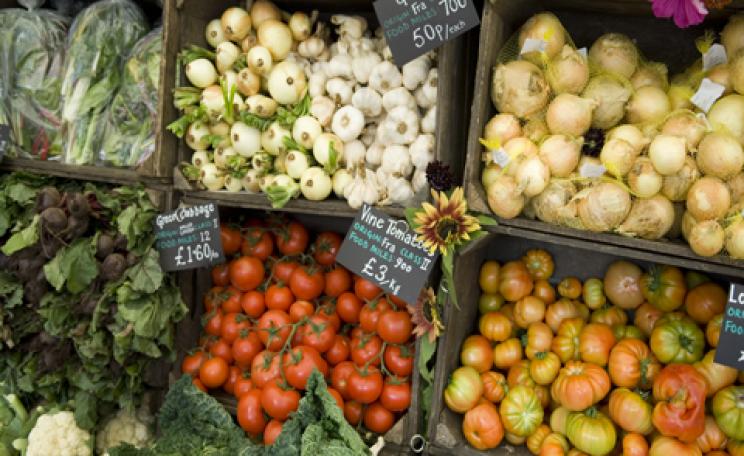Sampling healthy and organic food at the Kids Taste Tent
The ninth annual Organic Food Festival drew to a cloudy close after an otherwise sunny Bristol weekend on the 13th of September.
The Festival is designed to showcase the best in organic that Britain has on offer and is put on by the Soil Association as part of their Organic Fortnight, which runs from the 5th-20th of September.
Despite the Organic Festival being the largest of its kind in Europe, this year it was in jeopardy until Yeo Valley Organic stepped in as the key sponsor, and was still smaller than in previous years.
Sandwiched among the many food vendors selling an array of organic cheese, meat, fudge, veggies, beer, fruit and spices were zones dedicated to health and beauty products, sustainable fashion, NGOs and local community organisations.
Earnest activists spoke to small crowds about starting community gardens as tiny rocket plants were handed out nearby, with the smell of organic hamburgers wafting through the air.
Elsewhere in the Festival grounds, children clustered outside the Kids Taste Tent organised by the Soil Association’s Food For Life, a group dedicated to bringing local, fresh and healthy food into schools.
The Soil Association itself maintained a constant presence throughout the Festival (despite their singular and rather small booth), with members new and old sporting bright blue wristbands, granting them free access to the festivities.
Along with delicious smells, a general good feeling pervaded the space, helped along by happy children, generous free samples and exclusive Festival deals from the exhibitors.
By the end of a turn about the Festival grounds, visitors seemed content but a bit overwhelmed, often laden with reusable jute bags full of food and pamphlets.
The Soil Association wisely charged no admission for members and youth under 16, thereby encouraging new membership and fostering the next generation of organic consumers. The fact that there was a general admission to be exempt from (£5) was new – the Organic Festival was once completely free.
A large consumption-based event like the Organic Food Festival is full of decisions to make: ice cream from Cornwall or made of buffalo milk? Should I join the Avon Wildlife Trust? Would I prefer crumbly, buttery cheddar or a cheese more creamy and soft from Bath? Though brow-furrowing, these are gentle choices and part of an easy-going lifestyle.
Can the organic movement take that critical leap from individual choices in the grocery to society-wide change? The Soil Association’s Food Festival is certainly a critical step in bringing organic into the public sphere, and it is encouraging to see the number of small, local producers proudly displaying their sustainable wares.
I can only hope that the Festival does not continue to shrink and become more expensive, but remains an annual gathering point of the quietly growing organic movement.







